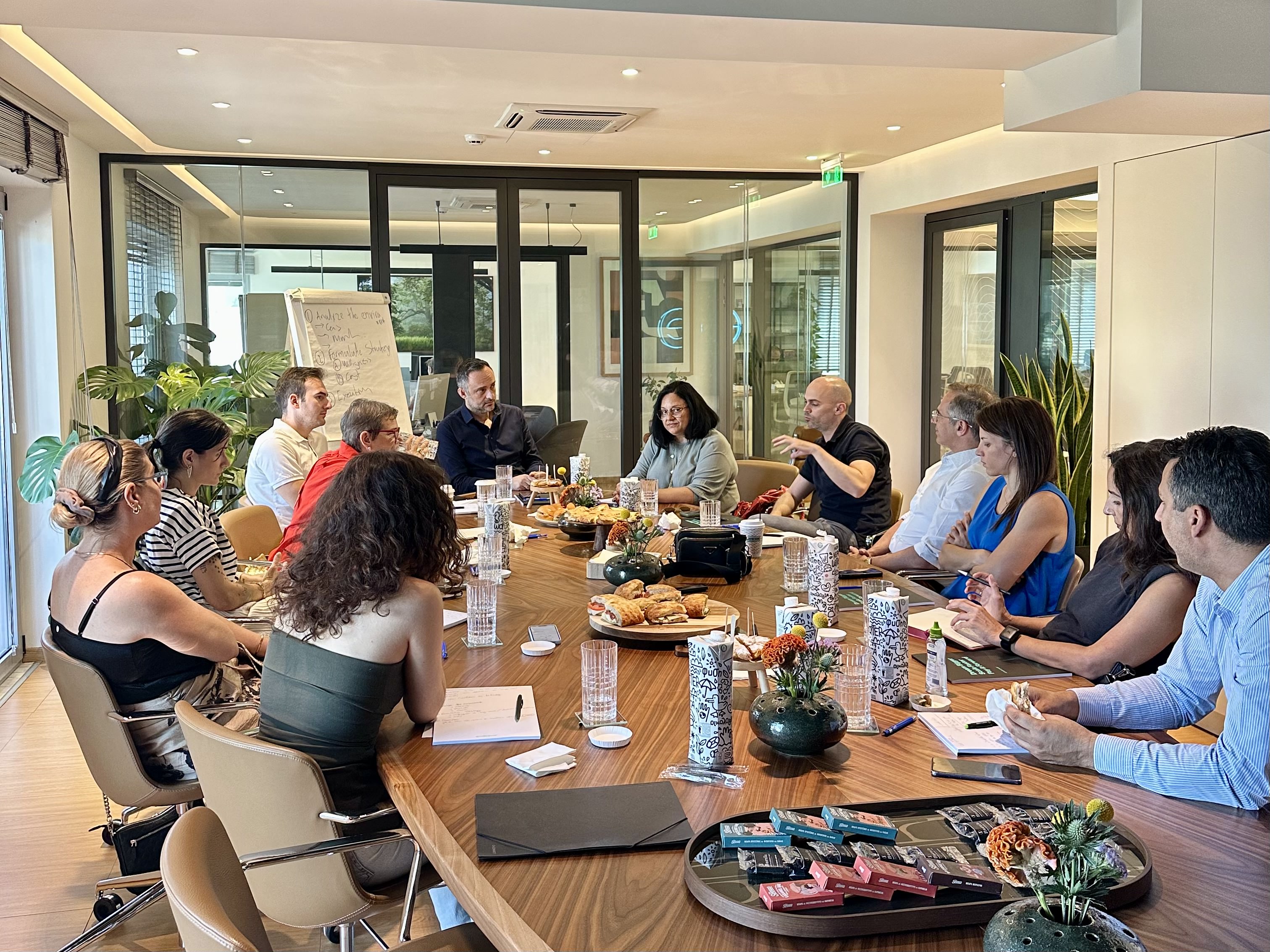Leading with Humanity: Lessons on Leadership and Transformation from Christoforos Stamoulakatos
By Endeavor Greece Jul 10, 2025
A warm summer Wednesday found a circle of CEOs gathered for breakfast at Endeavor Greece’s office with Christoforos Stamoulakatos, CEO Knauf East Africa and Executive Director Knauf Middle East Africa and South Asia. Drawing on his two decades of FMCG leadership, Christoforos engaged the group in an open discussion about what keeps modern organisations moving - and what slows them down.
Clarity Before Strategy
For Christoforos, effective leadership starts with clarity - and not just about financial targets. Too often, leaders define success purely in terms of numbers, without articulating what their company truly wants to achieve in practical, human terms. “If you ask leaders about their goals, they can give you figures,” he said. “But ask them what they really want to achieve - practically, not theoretically - and many struggle to answer.” This lack of clear, shared aspirations can leave teams without direction, hindering motivation and progress. Leaders need to go beyond KPIs to define purpose, vision, and operational objectives in ways that align and inspire.
Empowering Decision-Making and Breaking Silos
However, clarity alone is not enough. Christoforos emphasised the importance of building transparent decision-making frameworks so that people know how to act and who owns what. Without such frameworks, even the best strategies remain just words. This challenge is compounded by silos within organisations, which he has seen repeatedly weaken companies’ ability to adapt and grow. Breaking down silos requires intentional effort: creating a shared language, building common frameworks, and fostering a culture where collaboration is not optional but expected. Only then can teams move quickly and cohesively towards shared goals.

Rethinking Hiring and the Value of “Glue People”
When it comes to building teams, his advice was refreshingly pragmatic: prioritise fit over pedigree. “Don’t look for the best on paper; look for the most suitable for your goals.” Skills can be taught, but character, adaptability, and alignment with the company’s ways of making decisions are harder to instill. He also highlighted the often-overlooked importance of “glue people” - those individuals who, regardless of title, hold teams together through their relationships, informal knowledge, and quiet leadership. Organisations that fail to recognise and support these people risk becoming dependent on individual personalities rather than building institutional capability and resilience.
Motivating Different People, Leading Different Generations
Understanding what drives different people is also critical. Christoforos outlined how some employees are motivated by approval, others by control, some by job security, and others by excellence itself. Effective leaders learn to identify these drivers and adapt their approach, creating environments where each person feels valued and empowered to contribute. The discussion turned to generational shifts, with many CEOs noting that traditional incentives like home ownership no longer resonate with younger employees, who instead prioritise flexibility, happiness, and personal freedom. “You won’t change them,” Christoforos said. “You have to change how you manage them.”
Leading with Humanity
In closing, he reminded everyone around the table of what leadership is ultimately about: “A leader's duty is to become better for your people. Hire people who are better than you. Your job is governance, people engagement, and development strategy. That’s all there is to it.”
His words were a powerful reminder that in a world focused on scale and speed, leadership remains, at its core, a deeply human endeavour - about understanding, empowering, and growing people so that organisations can thrive alongside them.
